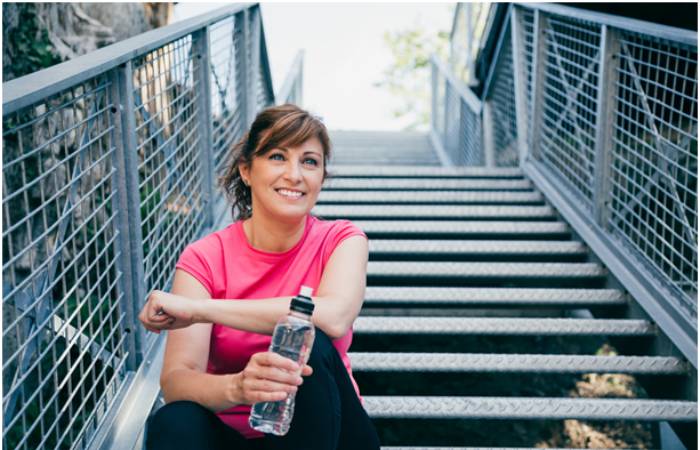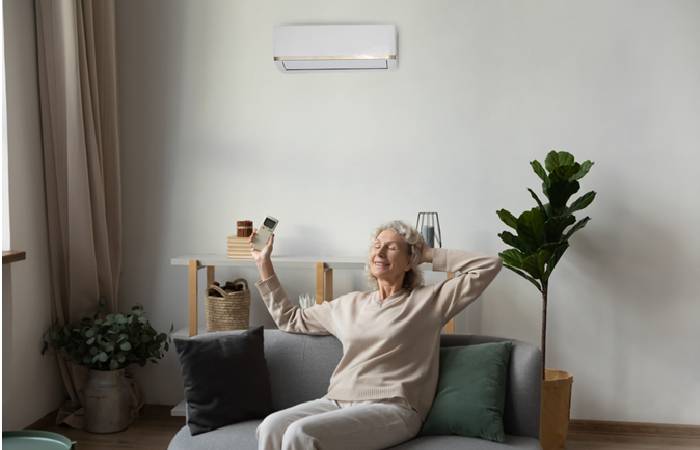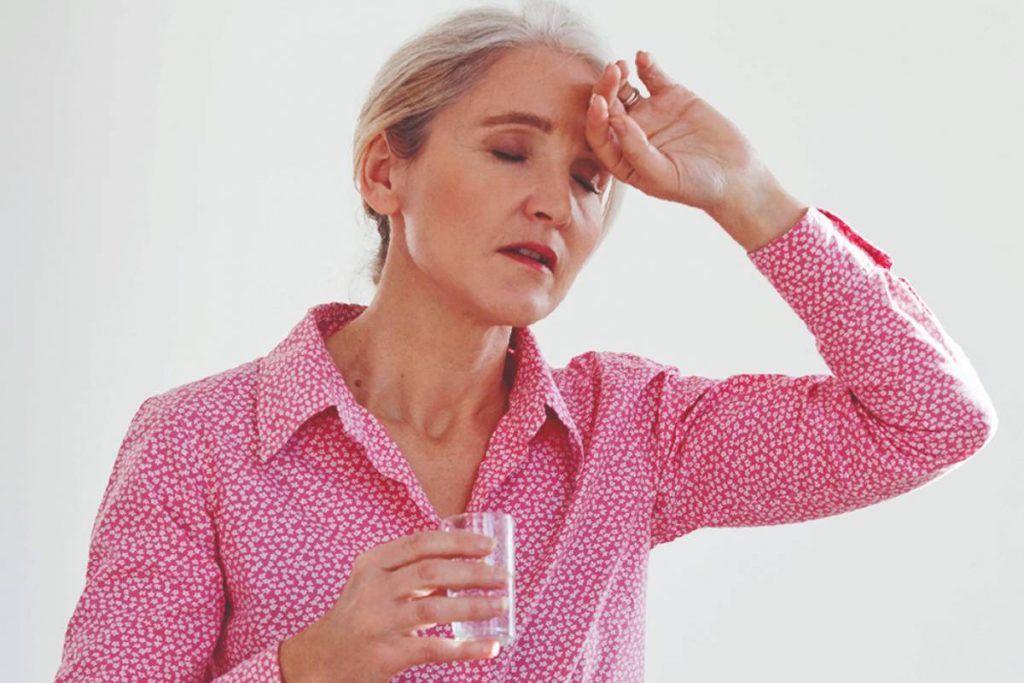For women whose menopause symptoms are triggered by heat, summer can be a tough time to get through, especially if you live closer to the equator. Today, we’re sharing different ways that you can make summer more bearable if you’re going through perimenopause or menopause. Here are our tips for getting some much-needed menopause relief during the summer months:

Table of Contents
Stay hydrated.
Staying hydrated is essential during summer even if you aren’t going through menopause. Water is the best choice to stay hydrated, avoid irritating your bladder and help you beat menopause fatigue. If you don’t like the taste of plain water, try infusing it with fruits and vegetables to give it some delicious flavor. If you live somewhere very hot and sweat a lot during the summer, you might also want to add some electrolyte powder to your beverage to replenish the electrolytes that you’re losing. Chill your beverage to help you cool down even further.
Avoid hot foods and drinks.
By avoiding hot foods and drinks, we mean “hot” both literally and figuratively. Food and drink with a high temperature can cause you to start sweating, increase menopause bloating and even trigger a hot flash. Spicy foods are also known to contribute to hot flashes, as do citrus fruits and chocolate (since it contains caffeine). Make an effort to avoid these potential triggers to lower your risk of a hot flash during the summer.
Order virgin cocktails.
Sipping cocktails on the patio as the sun goes down is one of the joys of summer. Unfortunately, alcohol is another known trigger for menopause symptoms and has been known to cause hot flashes in some women. If you know that alcohol triggers hot flashes or other unpleasant side effects, stick to ordering virgin cocktails. They’re just as delicious as the “real” thing without the alcohol, so you don’t have to give up summertime drinks outside.

Choose breathable clothes.
Tight, non-breathable clothing will make you feel overheated and can even trigger a hot flash. During the summer, ditch synthetic fabrics such as polyester and rayon and instead turn to cotton to help your skin breathe. You should also choose loose styles of clothing; flowy linen pants are a much safer bet than tight jeans when it comes to preventing a hot flash. If you tend to sweat a lot during the summer, choose darker fabrics — which won’t show sweat stains — and keep a change of clothes in your car so you can switch out your outfit on demand.
Protect your skin from the sun.
Sun exposure doesn’t just contribute to hot flashes; it also prematurely ages your skin and can even contribute to skin cancer. You should avoid the sun during the hottest part of the day (10 a.m. to 4 p.m.) and seek shade whenever possible. Cover as much of your skin as possible without overheating and apply sunscreen with a minimum of SPF 30 (and ideally SPF 50) to any remaining exposed skin. You should also wear sunglasses and a wide-brimmed hat to protect your facial skin, which is very susceptible to sunburn.
Exercise indoors.
We love exercising outside as much as the next person, but unfortunately, the hot summer temps are a recipe for both heatstroke and hot flashes. As temperatures mount, we recommend switching to exercises that you can do indoors where you can take advantage of air conditioning. For instance, if you normally run outdoors, try running inside on a treadmill during the hottest days. If you absolutely must exercise outdoors, do it early in the morning when temperatures are coolest.

Cool down your home.
If you are lucky enough to have air conditioning in your home, then you should absolutely take advantage of it. If your home or apartment doesn’t already have AC, then a window unit is about to become your best friend. Turning on fans and opening windows if there is a breeze will also help you to stay cool (not to mention help keep your electric bill down). You might also consider carrying around a portable fan with a water mister so that you are prepared if you feel a hot flash coming on.
Take a cold shower.
One of the best ways to cool down quickly — before bed or any time that you have become overheated — is taking a cold shower. When you get out of the shower, move slowly to avoid raising your body temperature and sweating again. If at all possible, let your hair air dry; operating a hairdryer, straight iron and/or curling iron will heat your bathroom right back up and undo all the benefits of taking a cold shower.
Stay cool at night.
The dreaded menopause night sweats often strike during summer when it still stays hot even after the sun goes down. Choose cotton sheets and pajamas to help your skin breathe and to avoid trapping sweat. If you don’t want to cool the whole house while you sleep, get a window AC and/or a fan for your bedroom and fire it up an hour or two before bed so it can bring the temperature down. You can also try tucking a cold gel pack or a bag of frozen peas underneath your pillow to help you cool down even further as you drift off.
Surviving summer during menopause may feel impossible, but you can totally do it with the right solutions up your sleeve. Keep this advice in mind as you start to prepare for the summer. Got another awesome tip for managing menopause symptoms during the hotter months? Share them with us below so we can all learn from each other!
